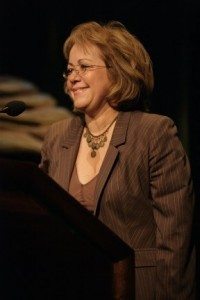Labor & Economy
The New America: A Talk With María Elena Durazo, Part 2

Maria Elena Durazo serves as Executive Secretary-Treasurer of the Los Angeles County Federation of Labor, which represents more than 600,000 union workers. She is also the Chair of the National AFL-CIO’s Immigration Committee and recently spoke to Frying Pan News about the pending immigration bill in Congress, as well as a new student film competition that her organization and UNITE HERE are sponsoring. (Part 1 of this interview appeared yesterday.)
Frying Pan News: Is there something in particular that bugs you about the immigration bill?
Maria Elena Durazo: Yes! We want to make sure that there’s an alternative to the past guest worker model. We’re hopeful that we can fix the language through what’s commonly referred to as the Labor-Chamber agreement. There are three elements to it. One, that there be an objective, data-driven analysis of the future needs of workers in this country. That it not just be that Joe Blow employer decides, “I need 100,000 new workers and so you just have to give them to me.” But rather, that you create an independent bureau that would provide the data and [confirm] that in such and such part of the country we’re short of these kinds of workers. To try to fill the need with native-born workers having a very open, transparent registry of jobs by employers.
Second, the right to self-petition for legalization and citizenship, rather than to be beholden to the employer – so that you can become a citizen if you want, rather than your only option is to come to work and then you’ll be required to return to your home country. That you’ll actually have the right, built into that visa, to self-petition for legalization.
And the third part that distinguishes it from the old guest worker model is employer portability – to be able to move to another employer, on your own, is an essential element. This would ensure that the worker is not under the thumb and under the threat of the employer with regard to wages and working conditions, and that that employee has the same right as other workers to unionize, to speak up for themselves. Right now [these rights] are in there somewhere, but not as strong and clear as we would like them to be.
FPN: Is there a danger that the immigration bill, with its border-protection mandate, just becomes another Homeland Security appropriation?
Durazo: Well look, there’s the danger of that in any federal program. You come under sequestration, you come under budgets that the Republicans want. The danger is that the bill will say, “Any triggers would be enforced first and then, maybe, the path to citizenship.”
FPN: The Heritage Foundation has released a study that plays on some old fears. It says the cost of legalization of immigrants will be trillions of dollars and raises the specter of a permanent class of citizens who are under-educated and under-achieving. How do you counter the immigration myths employed by your opponents?
Durazo: If it wasn’t for the fact that immigrants are practically in every town and state of this country, it would be a lot harder to counter them, because myths are easily believed. But enough people have had experience with immigrants that while that “study” might hurt us temporarily, for the most part Americans will say, “You know, that’s not my experience.”
I’m always amazed whenever I hear this at town hall forums – people are saying, “They are my neighbors.”
I remember a young Anglo man from an evangelical church told me he learned about the immigration system through a Latina whom he married. If it had not been for that personal contact, he may have believed all these myths. He learned the reality – that there is no line for the 11 million to stand in. He realized it was all wrong, all lies.
FPN: 9/11 brought on a huge immigration backlash – how have the Boston Marathon bombings played out?
Durazo: Lots of us were nervous about what the reaction to Boston would be. Turns out, it’s not an issue that’s moved the majority of people away from immigration reform. Even Speaker [John] Boehner, after the Boston Marathon attack, said, “You know what, these are two different issues, don’t try to connect the attack in Boston with immigration reform.”
FPN: Has the Los Angeles Catholic Archdiocese under Archbishop Gomez been as active in immigration issues as it was under Cardinal Mahony?
Durazo: He’s told me he uses different tactics – he’s not the kind to do the marches with us the way Cardinal Mahony did, but he says it’s a priority. He’s done a number of events in churches to ask for support. He’s doing it in a very different way than Cardinal Mahony did.
FPN: What’s been the impact of young immigration activists?
Durazo: The Dreamers and their testimonies in every state changed the consciousness of this country. They stood up and said, “I’m undocumented, this is my country. The only thing that separates us is a piece of paper.” Those personal stories resonate more now than the myths.
Then you take a state like Arizona, where high school kids – hundreds of them! – campaigned against [Sheriff Joe] Arpaio. Knocking on voters’ doors, getting them out. They also helped get the recall of Russell Pearce, the author of [the anti-immigrant] SB 1070. Again, that doesn’t happen just because people are angry. That happens because of anger and day-to-day, one-by-one organizing. Talking to people.
FPN: The County Federation of Labor and UNITE HERE have organized a student film competition, “Cortos y Fuertes/Short and Strong,” that is accepting three-minute films about the immigrant experience. What is the thinking behind this project, which has reached out to Hollywood?
Durazo: We have been inspired by the youth and activism in the labor, Dreamers and immigrant rights movements. There’s a special energy there that’s highly respected and has won over people to our issues. We want to connect the entertainment industry with a very important issue – immigration – so we thought it would be kind of fun to move all these pieces together.
And we want to make a greater connection between the labor movement and certain leaders in the entertainment industry, where there are a lot of progressives and liberals who support the labor movement and immigration, but maybe don’t have a lot of specific projects they could get involved with.
FPN: It’s not as though Hollywood’s been making a lot of Norma Raes lately.
Durazo: Before the idea of the competition, we’d been working for many months on the notion of how do we connect the labor movement with the entertainment industry to affect working people? We needed something specific to work on – rather than leave it at a general [question], “Do you support the labor movement.” That’s boring. This seems to be an interesting project.
FPN: And this is where young filmmakers come in?
Durazo: Young people have an extraordinary instinct about the labor movement. They see their parents working really hard and not getting what they deserve. When they see the labor movement working side by side with them to win their rights, they have a way of communicating that in a simple way – much more simple than any of us. We go around and around in circles and tie ourselves in knots. I hope that young people will connect with the labor movement but also that we have an impact on the pop culture and what comes out of the entertainment world.

-

 Latest NewsJune 17, 2025
Latest NewsJune 17, 2025A Coal Miner’s Daughter Takes on DOGE to Protect Miners’ Health
-
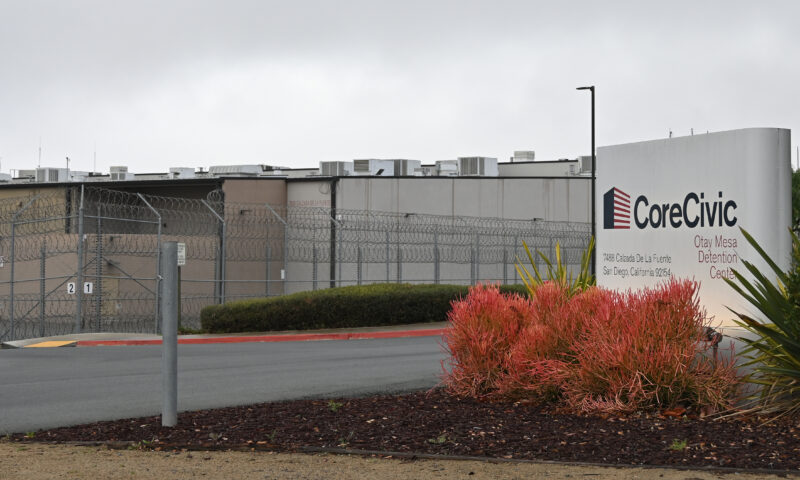
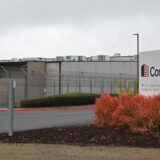 Beyond the BorderJune 10, 2025
Beyond the BorderJune 10, 2025Detained Man Says ICE Isn’t Treating His Colon Cancer
-

 Column - State of InequalityJune 12, 2025
Column - State of InequalityJune 12, 2025‘Patients Will Suffer. Patients Will Die.’ Why California’s Rural Hospitals Are Flatlining.
-
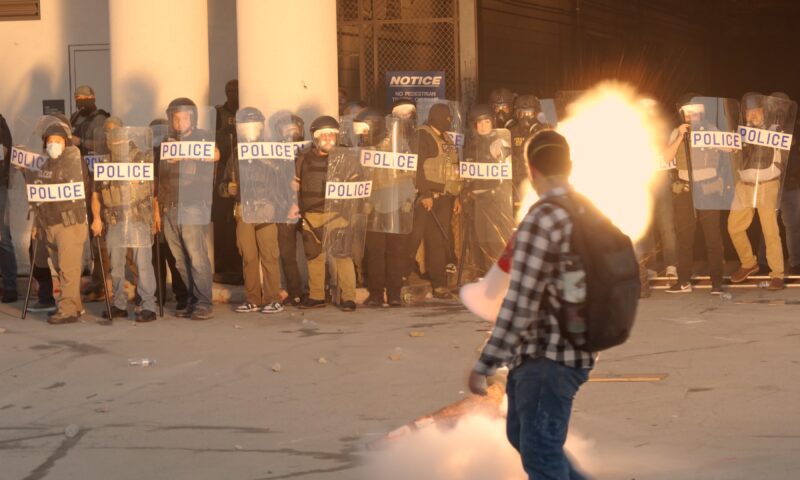
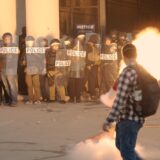 Featured VideoJune 10, 2025
Featured VideoJune 10, 2025Police Violently Crack Down on L.A. Protests
-

 Column - California UncoveredJune 18, 2025
Column - California UncoveredJune 18, 2025Can Gov. Gavin Newsom Make Californians Healthier?
-
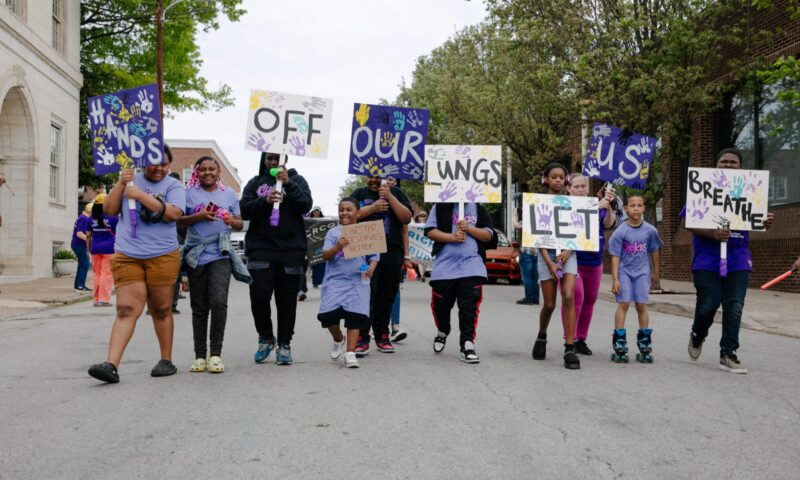
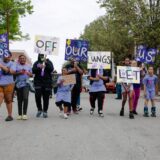 The SlickJune 6, 2025
The SlickJune 6, 2025Pennsylvania Has Failed Environmental Justice Communities for Years. A New Bill Could Change That.
-

 Latest NewsJune 6, 2025
Latest NewsJune 6, 2025Trump Won Big in Kentucky. Medicaid Cuts Could Hit It Hard.
-
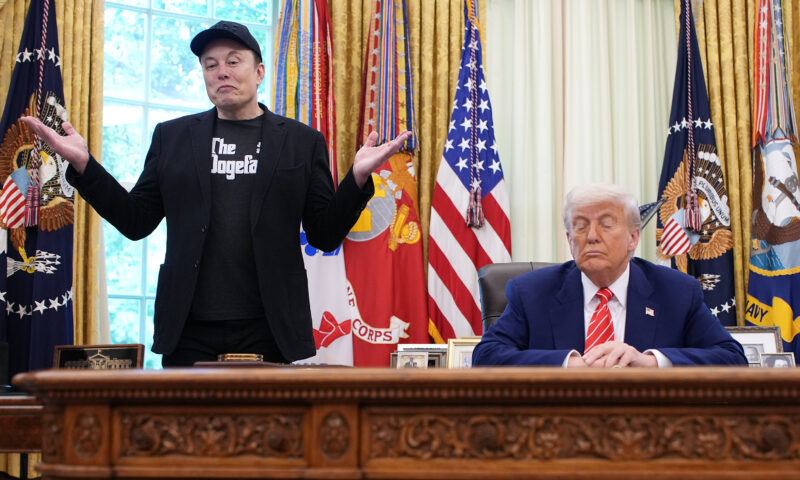
 Latest NewsJune 6, 2025
Latest NewsJune 6, 2025Before Attacking Each Other, Musk and Trump Struck Blows Against Veterans, Children, the Hungry and the Sick

